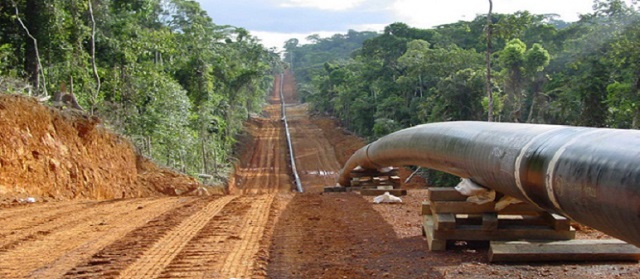Right Livelihood, a courage-powered community for social change based in Sweden, has issued a passionate plea to halt the construction of the East African Crude Oil Pipeline (EACOP).
Attributing their call to preserving Uganda’s biodiversity specifically wetlands, this plea was in the wake of the 54th session of the UN Human Rights Council.
The declaration from Right Livelihood resonates deeply, highlighting that the right to a pristine environment forms the bedrock of all other rights, including the sacred right to life itself.
In a statement released by the community, they observed that in Uganda, this fundamental right appears to be under threat, as the government remains unwavering in its support of the EACOP project, in collaboration with the French energy giant, TotalEnergies.
They pointed out that with the ink drying on this controversial partnership, the ominous specter of irreparable ecological harm casts a long shadow over the lives of over 100,000 Ugandans.
These communities, they said, are already grappling with the specters of food scarcity and insurmountable debt, find themselves perilously balanced on the brink of further displacement.
The statement also makes it clear that activists, the courageous defenders of Uganda’s environmental heritage, are met with a chilling silence, their offices vandalized, their voices muzzled, and their freedom curtailed. It is a symphony of intimidation, a chilling refrain of suppressed resistance.
“We deplore that, instead of protecting the rights of its population, Uganda has been targeting activists and peaceful protesters who stand against oil projects. Multiple civil society organisations saw their offices vandalized, and activists have been arbitrarily arrested and then put on police bond, in an attempt to silence and intimidate them,” Right Livelihood said in a statement.
Yet, amidst this tumult, a clarion call resounds from the hearts of those who champion the cause. They implore the European Council to wield its influence, to beseech Uganda and all stakeholders to reconsider the grave toll of the EACOP venture.
They demand equitable compensation for the affected, and they beseech for a paradigm shift—a human rights-centered approach to safeguarding the environment.
In a clash of narratives, a recent study emerges, casting a stark light on the potential devastation wrought upon Uganda’s precious wetlands. The leaflet, titled “Eacop Impacted Wetlands in Uganda,” bears witness to the interconnectedness of life.
It reveals five sprawling wetland systems, their destinies inexorably intertwined with the pulse of Lake Victoria, Lake Albert, and the Victoria Nile.
Yet, even as the alarm bells toll, proponents of the EACOP project dismiss the report’s findings, dismissing them as the biased echoes of perennial opposition. In their eyes, progress trumps preservation.
And so, the wetlands stand as sentinels, their fate hanging in the balance. Wambabya, Kafu, Nabakazi, Katonga, Kibale-Bukora—these names echo across ten districts, resonating as vital sanctuaries for aquatic life.
In the delicate dance of nature, concern grows like a gathering storm. Should the insulation falter, the repercussions for biodiversity would be nothing short of catastrophic.
The denizens of Uganda’s wetlands, from the sinuous creatures that traverse its waters to the avian sentinels that grace its skies, hold not only ecological significance but are the lifeblood of a burgeoning tourism industry.
And so, the battle lines are drawn, the voices raised in a passionate crescendo. The EACOP project teeters on the precipice, its impact, both ominous and promising, etched into the very fabric of Uganda’s future.
The story of Echoes of Wetlands unfolds, a tale of a nation at the crossroads, where the clamor for progress collides with the whispered plea of a fragile environment.
Do you have a story in your community or an opinion to share with us: Email us at editorial@watchdoguganda.com












